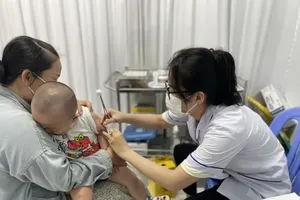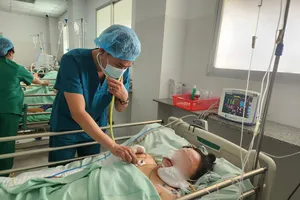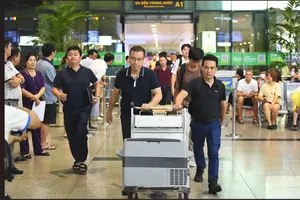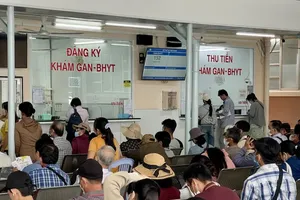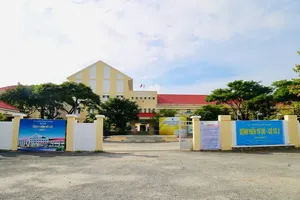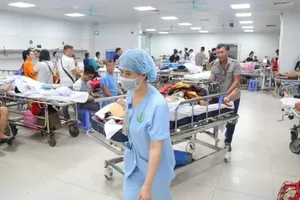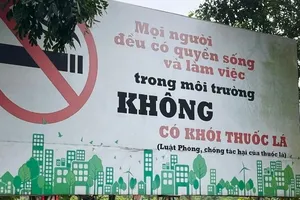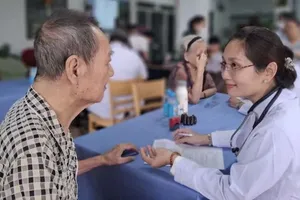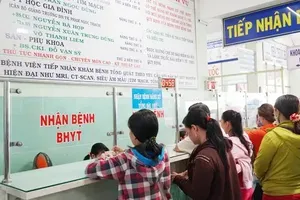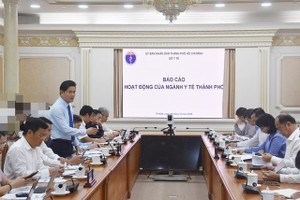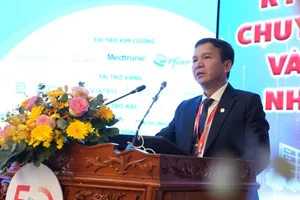
Ho Chi Minh City has submitted a proposal to expand social welfare measures, including full health insurance support for seniors and additional subsidies for students, alongside improved benefits for vulnerable patients and people in serving the cause of the nation’s revolution.
The city’s plan calls for covering 100 percent of health insurance contributions for residents aged 65 to under 75 who are not already receiving support, and providing an extra 50 percent subsidy for students in both public and private schools, supplementing the minimum 50 percent support from the Government. This policy is expected to benefit more than 2.56 million people, with an annual budget of about VND1,953 billion ( US$74.12 million).
Officials emphasized the need for a unified policy after the administrative merger of Ho Chi Minh City with neighboring provinces, where health insurance support levels had varied significantly. The new proposal aims to ensure fairness, consistency, and fiscal feasibility while addressing the city’s current coverage rate of 83.15 percent, which remains below the national target.
Furthermore, the city also highlighted the practical requirement that the city's health insurance coverage rate, following the merger, has only reached 83.15 percent (as of September 30, 2025), which is lower than the national target. Meanwhile, there remain groups of students and low-income elderly people who have not yet participated in health insurance despite already receiving partial support. Supplementing the support level is deemed necessary to reduce the burden of medical examination and treatment costs, enhance health protection for vulnerable groups, and ensure that no one is left behind.
With this policy, the city expects to create a sustainable social welfare foundation, reinforce public trust during the post-merger transition period, and contribute towards achieving the goal of universal Health Insurance coverage by 2030.
Ho Chi Minh City proposes higher meal support for vulnerable patients
Ho Chi Minh City is moving forward with a significant proposal to raise daily meal allowances for some of the most vulnerable patients in its healthcare system, including those living with HIV/AIDS, drug-resistant tuberculosis, mental illness, and leprosy. The plan, submitted by the People’s Committee of Ho Chi Minh City, would apply to four specialized hospitals under the Department of Health such as Nhan Ai Hospital, Mental Health Hospital, Ba Ria – Vung Tau Mental Health Hospital, and Ben San Leprosy Hospital.
The city noted that current support levels, issued between 2005 and 2013, are outdated and no longer meet minimum nutritional needs. Many of these patients suffer from chronic conditions, weakened immunity, and often lack family caregivers, requiring long-term hospital stays.
Under the draft plan, the new allowances would be:
- VND85,000/day/person for leprosy patients at Ben San Hospital
- VND170,000/day/person for HIV/AIDS and drug-resistant tuberculosis patients at Nhan Ai Hospital, and for psychiatric inpatients at two mental health hospitals
- VND255,000/day/person as supplemental meals during holidays and Tet
These rates are aligned with social protection policies applied at public institutions, ensuring fairness and consistency. The total annual budget for the policy is estimated at VND94.29 billion, an increase of more than VND82 billion compared to current levels.
Ho Chi Minh City proposes support for convalescence, tours, and trips for contributors to the revolution and martyrs' relatives
The Ho Chi Minh City People's Committee also submitted a proposal regarding the policy to support regimes for convalescence, conferences, tours, and "Return to the Source" trips for contributors to the revolution and martyrs' relatives residing in the city. This policy aims to standardize benefits across the area following administrative unit rearrangement and meet the requirement to better care for the more than 350,000 files of contributors to the revolution currently managed by Ho Chi Minh City.
Ho Chi Minh City proposes to support transportation costs, including vehicle rental or economy class airfare; maximum meal costs of VND180,000 per person per meal (not exceeding 3 meals per day); and actual accommodation costs, up to a maximum of VND2 million per room per day in Centrally-run cities and VND1.8 million per room per day in other provinces (based on a two-person per room standard). Each person is entitled to this benefit once per year and it cannot coincide with activities organized by the Central Government or the City. The total estimated implementation cost is VND12.38 billion, which is assured to be within the local budget capacity.
